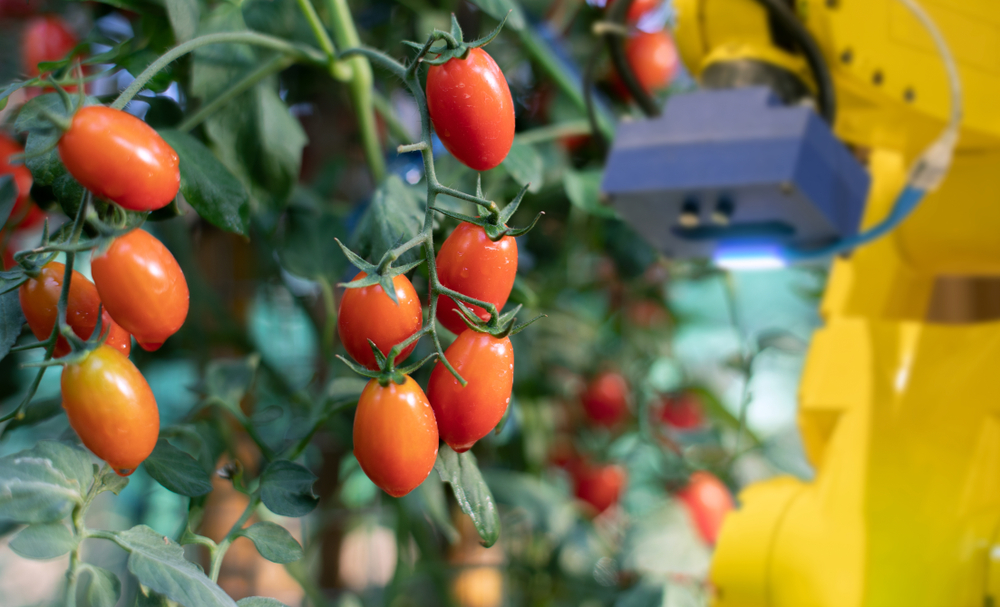The Detectable Vegetable
The project aims to minimize diseases and spoilage of horticultural vegetables in greenhouse cultivation.
Centre of Expertise Digital Operations & Finance

Preventing food waste and making food production more sustainable are high priorities on the political and societal agenda. In the greenhouse horticulture sector, diseases occur during crop cultivation, and spoilage takes place in the logistics chain. Conventional manual pest control methods incur high costs and lead to excessive use of pesticides. The research group Photonics at The Hague University of Applied Sciences leads the broad, practice-oriented research project The Detectable Vegetable. The project focuses on the (further) development of contactless sensor technology and data intelligence for the early detection of diseases and spoilage in horticultural vegetables.
Project objective
The project aims to minimize diseases and spoilage of horticultural vegetables in greenhouse cultivation. Through the (further) development of sensor technology and data intelligence, early detection is possible, leading to cost savings and a reduction in the use of pesticides.
Research
Within the project, optical sensors such as hyperspectral cameras and electromagnetic sensors are further developed and adapted for monitoring crops in greenhouse cultivation. Deep learning models and artificial intelligence are utilized for the analysis of acquired data and obtaining information about diseases and spoilage. The project also includes research into ensuring digital security and the integration of the sensors into the digital infrastructure. Practical pilots are also planned to explore how sensors can be combined with Automated Guided Vehicles (AGVs) on one hand and production lines on the other. Finally, research is conducted on the post-harvest phase, focusing on spoilage in the logistics chain.
Collaboration partners
The project is a collaboration between 2 universities of applied sciences, 2 other knowledge institutions, 6 SMEs, and 5 greenhouse companies and overarching organizations. The Hague University of Applied Sciences is the lead partner and is involved with multiple research groups: Photonics, Smart Sensor Systems, Smart Sustainable Manufacturing and Cyber Security and Safety.
HAS University of Applied Sciences contributes through the research group Green Health. Wageningen University & Research (WUR) and Delft University of Technology (TU Delft) bring expertise in sensors and data analysis. SME partners, including Mythronics, Gearbox, perClass, Hudson Cybertec, 2Harvest, and Vertigo, contribute expertise in areas such as greenhouse automation, robotics, data analysis, machine learning, cybersecurity, sensors, and horticulture in general. Industry representatives are also involved, including Greenport West-Holland, CombiVliet, Reijm&zn, Tomatoworld, and Innovation Quarter.
Intended duration of the project
January 2024 to January 2028.
Involved bachelor’s programs
- Applied Biology (HAS)
- Applied Data Science and Artificial Intelligence
- Applied Mathematics
- Electrical Engineering
- HBO-ICT
- Horticulture and Agriculture (HAS)
- Mechanical Engineering
- Mechatronics
- Next Level Engineering (THUAS master)
- Process & Food Technology
- Technical Business Administration
- Technical Physics
Funding
This project is financed by the Dutch Research Council (Regieorgaan SIA) through the RAAK-PRO program.
Project Leader
Steven van den Berg
[email protected]